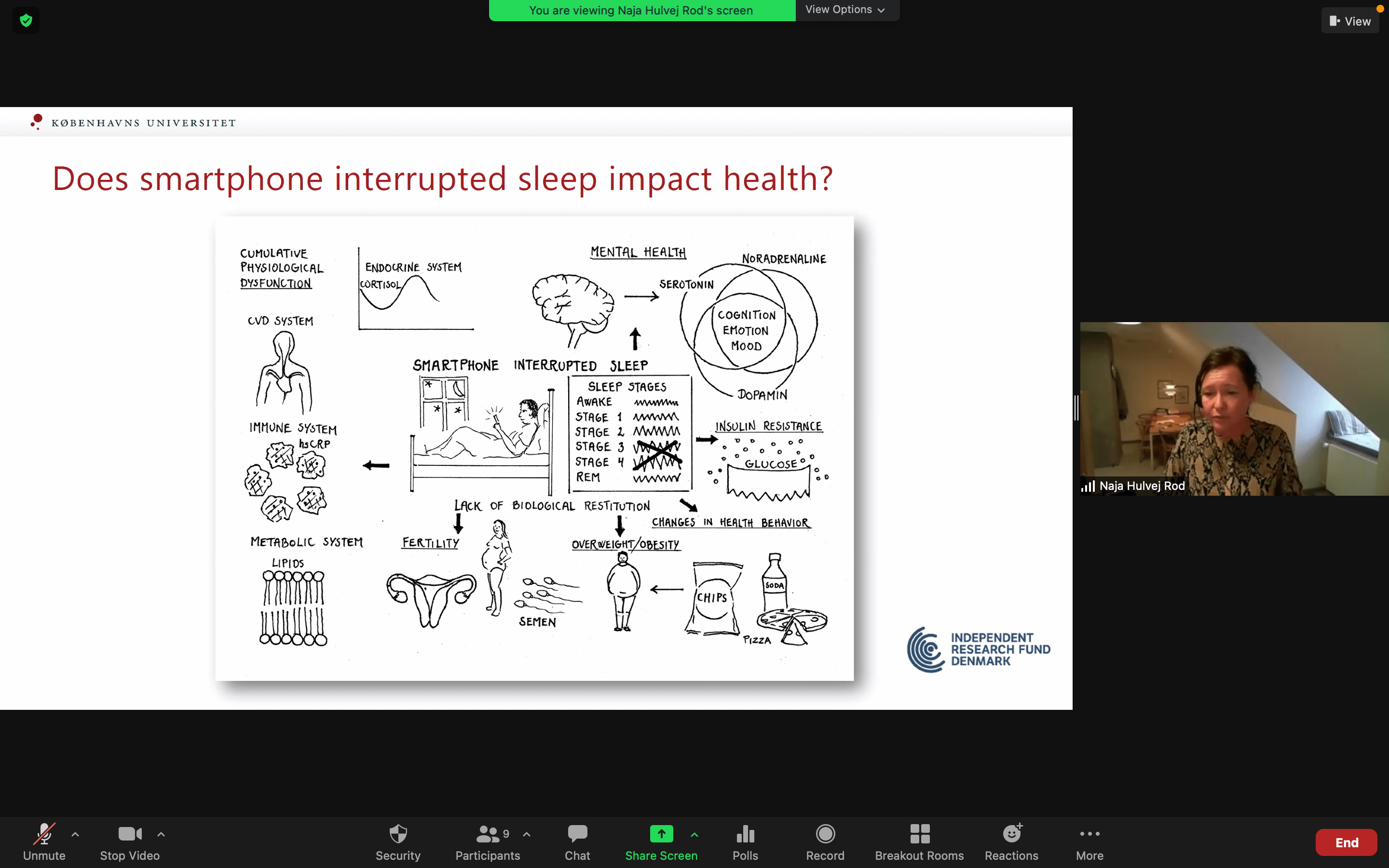DISTRACT seminar with Naja Hulvej Rod: Smartphone Interrupted Sleep: a New Public Health Challenge
On the 10th of December 2021, professor of public health Naja Hulvej Rod gave a presentation at a DISTRACT seminar entitled "Smartphone Interrupted Sleep: a New Public Health Challenge".

Abstract
Sleep is a nightly process of biological restitution and disruption of this process may lead to severe health consequences. Smartphones are easily carried into bed and offer multiple facilities that may disrupt sleep through mental activation (e.g., social media, streaming, news feeds). Also, the artificial bright light exposure from smartphones and the emission of electromagnetic radiation can delay release of sleep hormones and affect sleep latency. Thus, the massive and increasing 24-hour usage of smartphones raises public health concern.
The SmartSleep Study has been established to comprehensively assess the impact on nighttime smartphone use on sleep patterns and health. An innovative combination of large-scale repeated survey information, high resolution sensor-driven smartphone data, in-depth clinical examination and registry linkage allow for detailed investigations into multisystem physiological dysregulation, obesity, sub-optimal mental health, reduced fertility, and long-term health consequences associated with night-time smartphone usage and sleep impairment.
In this lecture, Naja Hulvej Rod will discuss the value of citizen science approaches to gain insight into smartphone interrupted sleep, and she will present the first findings from the SmartSleep Study.
Bio
Naja Hulvej Rod is Chair of the Section of Epidemiology at University of Copenhagen, which is a strong interdisciplinary and international environment that contributes to the development of the field of theoretical epidemiology, with a specific focus on causal inference, complexity, and life course epidemiology. She is also leading an interdisciplinary Complexity and Big Data Group. Health is a complex phenomenon, and she aims to study the social and biological factors determining health and disease and to elucidate the underlying behavioural, psychological, and physiological mechanisms that might explain these effects. She has solid experience in working with longitudinal datasets, register-based research and complex modelling including social influences and group dynamics. To embrace complexity in epidemiology, she actively explores new sources (e.g., smartphones) of ‘big data’, incorporate system theory thinking and leverage insights across disciplines. She is involved in several citizen science projects with a direct societal engagement and impact.
